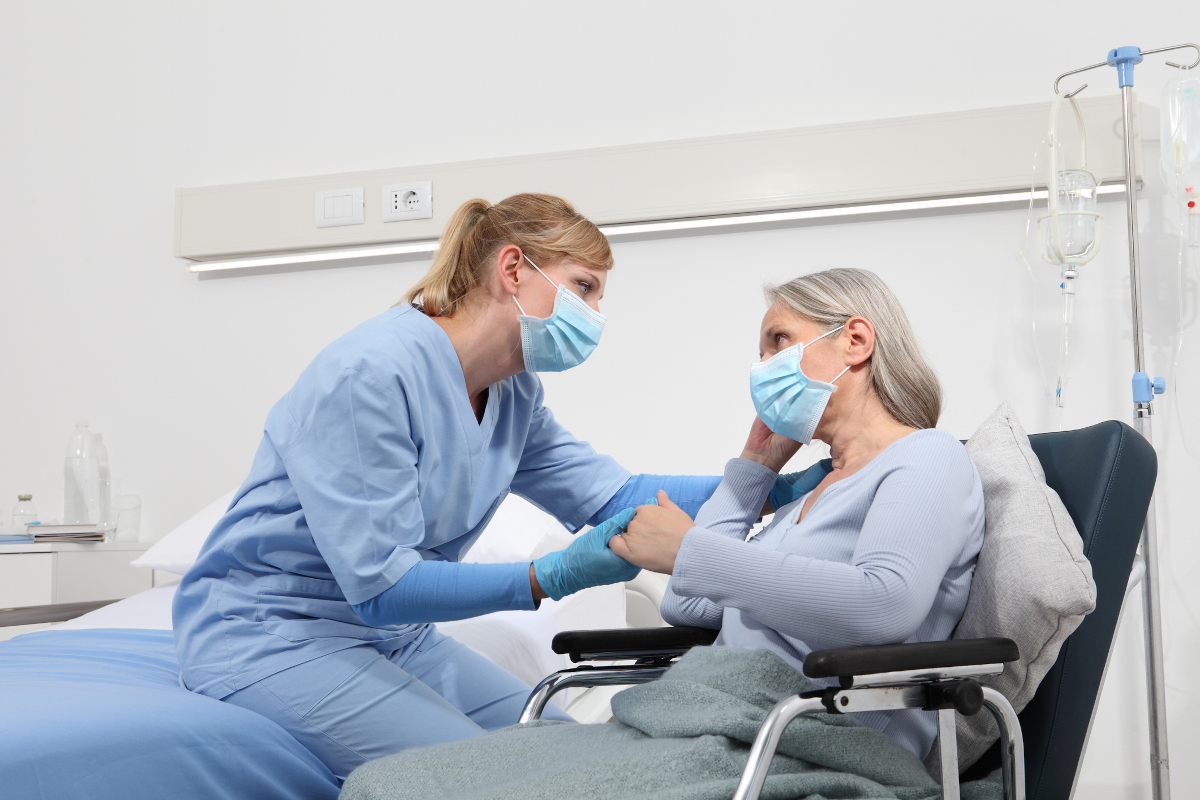The Medical Minute: You + your doctor = patient safety

After a year of COVID-19 headlines that make going to the grocery store, let alone a hospital, seem like a scary prospect, it’s no wonder patients are thinking more about their own safety.
National Patient Safety Awareness Week is March 14-20, but in reality, it’s a year-round focus for hospital staff – and one that started long before COVID-19.
“We have deliberate conversations about patient safety every day – and not just as a priority but as a foundational principle,” said Steve Mrozowski, director of patient safety and public safety officer at Penn State Health Milton S. Hershey Medical Center.
The answer to staying safe begins with three other questions recommended to patients at the Milton S. Hershey Medical Center, he said.
- What is my main problem?
- What do I need to do?
- Why is it important for me to do this?
“Patient safety is a shared responsibility between the provider and the patient. That’s the premise behind these questions,” Mrozowski said. “Our clinicians are taught to be open to questioning, and they actually prefer when patients and families are engaged in understanding their care because they are best poised to keep an eye on anything that doesn’t seem to fit.”
Knowing that patients might feel intimidated in a hospital setting, care team members make it a priority to help patients feel comfortable, said Jane Whitney, patient safety officer at Penn State Health Holy Spirit Hospital.
“We are dedicated to ‘commit to sit,’ which means that doctors and nurses make a point to sit down at a patient’s bedside rather than stand at the door because it’s more welcoming,” she said.
Whiteboards in patient rooms include a space where patients can write – or dictate – their questions for the doctor. Whitney encourages patients to do so.
“This can serve as a trigger to discuss any questions they may have,” she said. “Patients are the most integral part of their health care team. We can’t determine the cause of illness, appropriate treatment or how treatment is working without patient input.”
Fostering effective two-way communication is a matter of building a bond with the patient, said Loretta Boyd, patient safety officer at Penn State Health St. Joseph Medical Center.
“Patients need to understand that we are there for them and keeping them safe is a priority, in addition to working with the physician to improve their health,” she said. “Once you have built trust, the patient will be less intimidated and will communicate and ask questions.”
Visitor restrictions in place due to COVID-19 have made patient safety more challenging because they can hamper the important role that families play in patient safety when they can’t be present.
“It’s often the clues offered by patients and their families that help care teams accurately diagnose and treat,” Mrozowski said. “Not all medical conditions present the same way, and patients and family members can often best describe changes from what is normal for them.”
Whitney encourages families to designate a point person for phone calls with the care team and to ask questions as soon as they have them. “Don’t wait until you feel frustrated,” she said.
Hospitals have protocols in place to prevent problems like medication errors, misdiagnosis, falls and transport errors. By and large, they work – but human errors do occur, Mrozowski said. During COVID-19, patients may hesitate to ask questions because they perceive the heightened busyness of the hospital. However, “that’s when we may overlook something, so it’s important to speak up then,” he said.
Staff use near-misses as a chance for education and reevaluation of protocols, Whitney said.
“Our Great Catch program, which allows staff to report near-misses, operates on the premise that the more catches you have, the fewer serious events or unsafe situations you will have,” she said.
Patients who truly understand their care recover faster, are readmitted to the hospital less often and have more productive follow-up visits with their doctors, the safety officers said.
The Medical Minute is a weekly health news feature produced by Penn State Health. Articles feature the expertise of faculty, physicians and staff, and are designed to offer timely, relevant health information of interest to a broad audience.
If you're having trouble accessing this content, or would like it in another format, please email Penn State Health Marketing & Communications.
